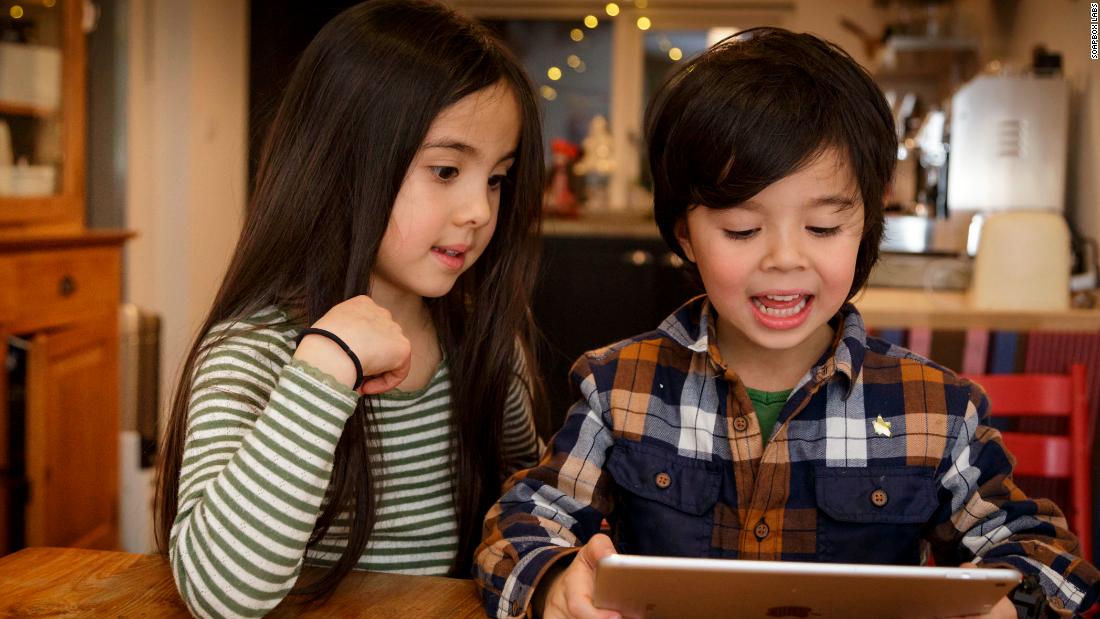Irish technology company helps children’s voices be heard
[ad_1]
While personal assistants for artificial intelligence (AI) are being integrated more and more into our everyday lives, they are just one application of language technology – and primarily designed for adults.
Irish tech startup SoapBox Labs wants to change that. The Dublin-based company has developed speech recognition technology specifically for children – and it’s already used in a variety of applications, from toys to educational apps.
Children’s voices are different from adults, explains Patricia Scanlon, founder and director of SoapBox. Typically, they have a higher pitch or use different speech or language patterns that normal speech technology can’t always capture, she says.
It’s understandable that “an industry that has spent decades working on technology and focusing only on adults is running into a pretty significant problem when trying to apply children to it,” she told CNN Business.
Instead of optimizing the speech technology already available on the market, SoapBox has developed its speech engine from scratch – with a focus on children between the ages of two and twelve. The company says it created a dataset to train its AI system, which is made up of thousands of hours of language spoken by children of all ages, accents and in noisy real world environments – kitchens, classrooms, and cars Dialects from a total of 192 countries was collected.
“A system like ours is very bespoke and designed to provide high levels of accuracy and age-appropriate responses for children,” says Scanlon.
Educate or play
SoapBox, which sells a technology rather than a consumer product, has raised more than $ 12 million in funding since its inception in 2013 and has attracted more than 50 customers from all over the world. The company states it is divided into two categories: “Educate” and “Play”.
The technology can help a child read or learn a language, Scanlon says. They act as a “helpful adult”, responding instantly to the child and giving them one-on-one conversations, and it can also help track a child’s progress and provide feedback to a teacher or parent, she adds.
SoapBox has partnered with online education companies such as New York-based Amplify, the Florida Center for Reading Research, and Lingumi, a UK-based English learning app.
The technology is also used by toy developers and game companies who want to create voice-controlled toys that can chat with the child, or immersive virtual or augmented reality experiences.
Lynne Hall, a professor of computer science at the University of Sunderland in the UK, agrees that the potential for language technology for children is “substantial”.
It provides an additional learning channel and “endless access to facts and skills,” says Hall, who envisions using it in the classroom as additional support for the classroom. “Adding speech recognition to interacting with on-screen experiences is likely an effective approach,” she says.
Scanlon believes it will also increase engagement, be it in education or games. “When kids interact with this technology, something magical happens and engagement increases,†she says. “[They feel like they are] be heard by the technology. “
Protection of privacy
A major challenge in developing language technology for children is building parenting trust, especially when it comes to privacy, says Andy Robertson, author of Taming Gaming, a book about video games for parents. But he believes SoapBox is taking the right approach.
SoapBox says it does not identify any users within its system and its voice data is never shared or sold to any third party – nor is it used to aid marketing and promotional activities.
“We respect children’s digital data protection rights, which are very different from adults,” says Scanlon.
[ad_2]

